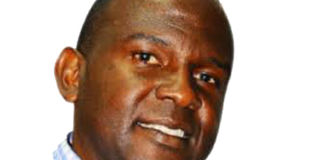Road accidents; trouble with leaving public transport in private hands

What you need to know:
Tragedy in traffic jam. A mother once died as the doctor who was supposed to handle the delivery of her twins was caught up in the traffic jam. The mother was a highly trained physician herself.
Bus and commuter taxi accidents have registered many deaths and casualties in the past few weeks on Ugandan roads. They have momentarily overshadowed our daily staple, the ubiquitous boda boda (motorbike taxi operators) accidents.
Every after one incident, as is the wont, earth shaking pronouncements and lamentations, to curb road accidents, have followed. As if to audaciously mock these road safety measures, another accident follows almost in the same fashion with similar consequences.
This trend is not likely to subside. It might just as well escalate. The problem started in the late 80s and 90s when poor countries where ‘directed’ by the Bretton Wood institutions; the World Bank and IMF, “to go to the market” with privatisation, deregulation plus structural and sectorial adjustment policies.
African economies had to get rid of loss-making entities and withdraw public participation from the market. This would give a free hand to the private sector. The creativity, innovation and entrepreneurial spirit of private enterprise, motivated mainly by profit, would take over the delivery of goods and services.
Government would only have to come up with policies to regulate the private sector to keep it in check. On paper these intentions were plausible in many sectors. One cannot say the same for mass passenger transport.
Hiterto, government through its Uganda Transport Company (UTC,) People’s Transport Company and various transport cooperatives, many of which used the Basi Za Baganda terminal in Kampala and other towns, had been the main players. Taxis, matatus and others complimented them.
These were shoved out by private individuals many of whom were connected or related to those in power. They acquired huge loans to start bus companies and took over the taxi business as well, creating cartels organised under umbrella bodies like the Uganda Taxi Operators and Drivers Association (Utoda) and Boda Boda 2010. Entities like Utoda made themselves valuable and relevant to the government by being regime promoters and enforcers as well.
This ‘immunises’ them from the burden of following traffic laws and they eventually become untouchable. Traffic policemen and other law enforcers are henceforth beholden to them and all rules and regulations have to be bent for their convenience. That is why you don’t have the enforcement of compressive insurance, punitive fines and deterrent sanctions for those vehicles that cause accidents.
To pay their bank loans and make a profit, they had to factor in breaking the law or to be a law unto themselves. Overtake from the wrong side of the road and at corners. Overload and speed to make as many trips as possible. Save on operational expenses by servicing and maintaining the contraptions less often, hire cheap labour (drivers) and overwork them. All these things are a recipe for disaster and this is where we are. The sector has employed so many people who have a condescending attitude towards law and order on the road right from the owner proprietor to the driver/rider and tout.
Those are the people who man the roads.
But a thought needs to be given to thinking out of the neoliberalism box and its advocacy for the market and profit in as far as public transport is concerned. Some of the States that are the great mothers and fathers of neoliberalism still involve in public transport. Germany, Netherlands, UK, etc, wholly own the railway systems, which transports most passengers in those countries.
A good, safe and viable transport system may not bring profit in monetary terms, but it will add value to the economy. For instance, if the government formed a bus transport company and flooded roads with buses on most routes reducing on matatus and salon vehicles, you would have less pollution and congestion. Here you kill many birds with one stone.
Studies have shown that many people such as in Kampala suffer from respiratory diseases due to inhaling fumes from the overcrowding cars and motorcycles.
These ended up being absent from their work places and affects their efficiency. It also has an impact on the health budget.
Other studies have indicated that on average motorists lose about three hours a day due to the gridlock on the roads caused by congestion. This affects productivity and production because people are working less than they should or are paid for, as they waste time seated in the traffic jam. It may also lead to disasters. A mother once died as the doctor who was supposed to handle the delivery of her twins was caught up in the traffic jam. The mother was a highly trained physician herself. These sort of losses are replicated everyday as accidents on our highways on a daily basis mean the loss of highly skilled manpower, bread winners and property which implies that children may lose the opportunity to go to school, etc.
That is why you would rather have the State heavily involved and investing in public transport even if it is not as profitable. It is better to have two well paid (at the taxpayers expense) fresh drivers driving on a route than one tired one speeding to make a return trip.
They should have the luxury of bus terminals on major highways to rest and freshen up so that the passenger arrives alive than sleep at the wheel, risking an accident, death of many, plus destruction of roads and property. The society may make a monetary loss but profit in terms of value added to welfare of society in the long run.
Mr Sengoba is a commentator on political and social issues. [email protected].
Twitter:@nsengoba


